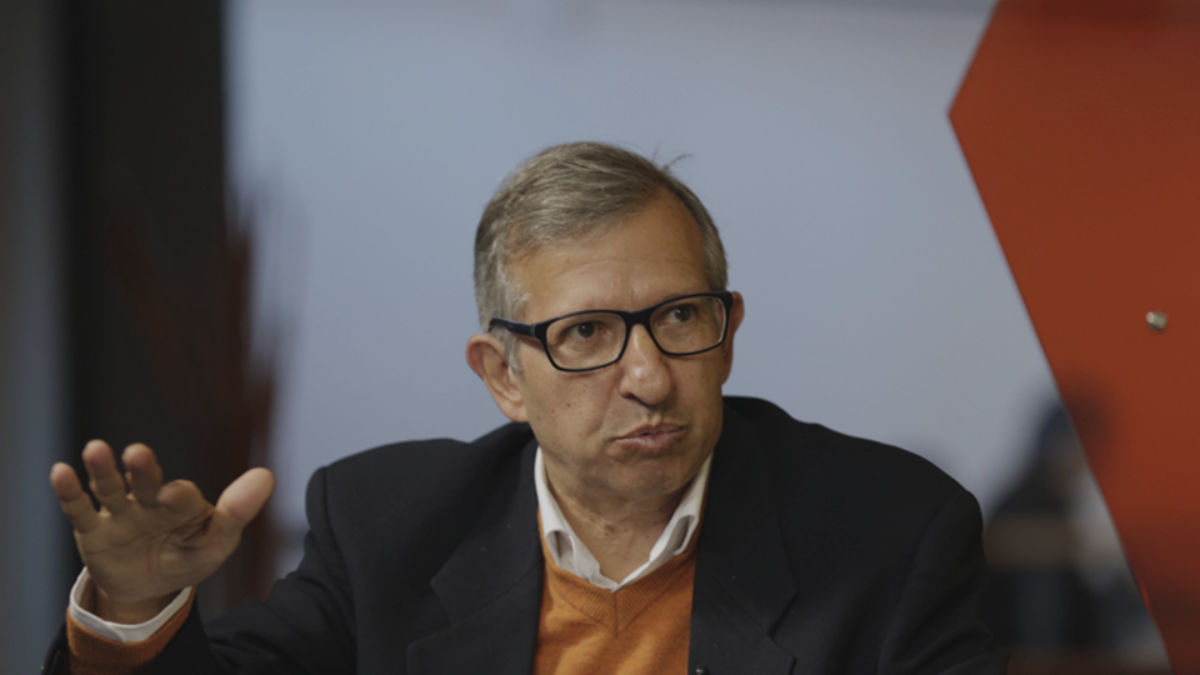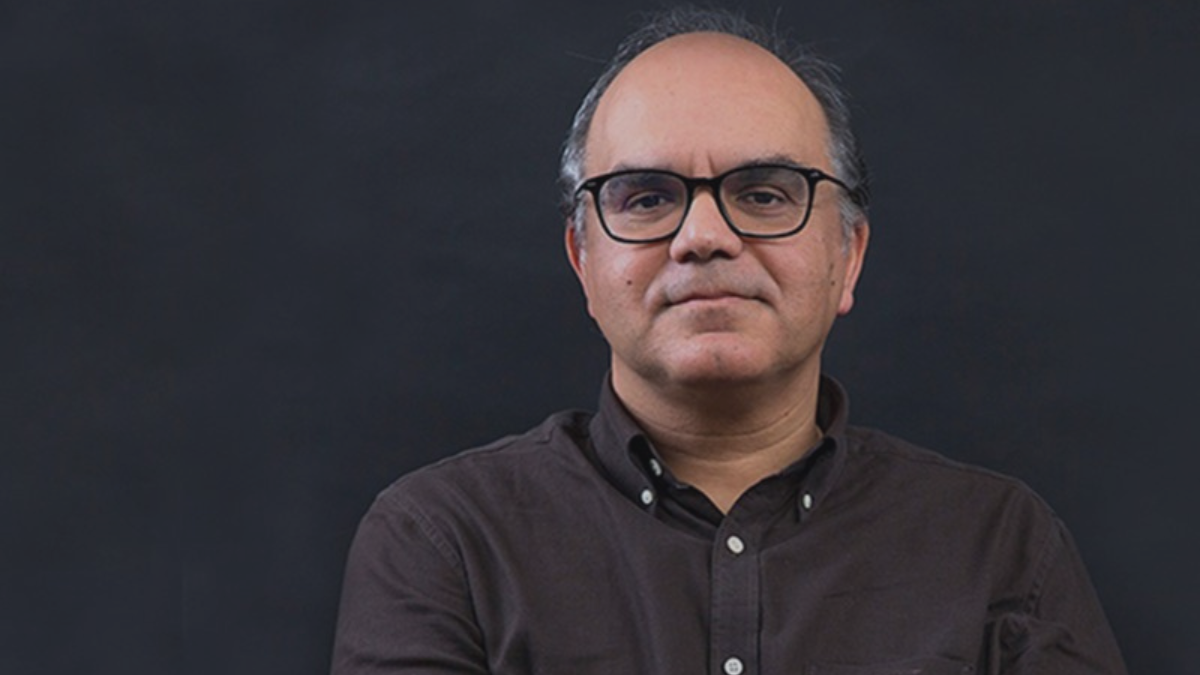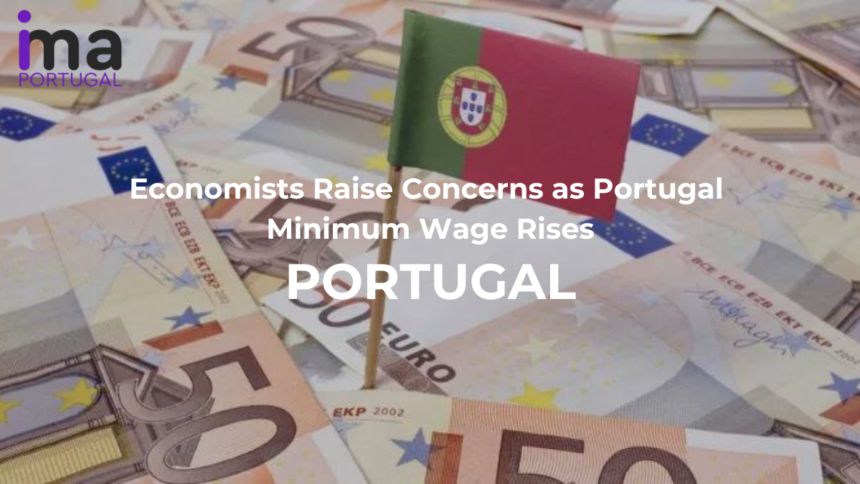Bringing the Portugal minimum wage closer to the average wage poses risks, as economists warn it may increase the number of minimum wage earners and limit wage progressions. The Government proposed a new income deal to social partners on September 25th to raise the national minimum wage.
The Government proposes raising the minimum wage to:
- 870 euros gross next year, representing a 6.1% increase from the current 820 euros.
- 920 euros in 2026, reflecting a 5.7% increase.
- 970 euros in 2027, indicating a 5.4% increase.
- 1,020 euros in 2028, representing a 5.2% increase.
For overall wage increases (negotiated in collective bargaining), the Government will maintain:
- 4.7% in 2025.
- 4.6% in 2026.
- 4.5% in 2027
- 4.5% in 2028
These adjustments will raise the average wage to 1,886.29 euros by 2028.
Economists Weigh In

This means the minimum wage will rise faster than the average wage. Economists interviewed by the media caution that this approach will narrow the gap between the two. They believe it will flatten the wage disparity curve.
Pedro Braz Teixeira said:
If the minimum wage rises at a rate higher than the average wage, the difference between the minimum wage and the average wage will necessarily narrow.
Despite this, the director of the research office at the Competitiveness Forum emphasizes that the current differential is lower than it was in the past. He explains that while there is still a convergence rate between the minimum and average wages, this rate is decreasing.
Read More About: Chega Proposes Government Subsidies For Minimum Wage Increase In Portugal
By 2028, the difference will shrink to just 0.7%, making it less significant. In comparison, the gap will be 1.4 percentage points in 2025. João Duque believes that the outcome largely hinges on how the private sector responds to this challenge.
He views the rise in the minimum wage as a stimulus for companies to boost productivity, innovation, and value-added capacity. However, he acknowledges that this is only a possible consequence, not a guaranteed one.
Trends in Average Salaries
João Cerejeira shares this view, noting that while the government sets the minimum wage by decree, companies use the value outlined in the income agreement for the average wage as a guideline. He added that last year, companies actually raised the average salary more than agreed and emphasized that it was a very favorable year, both in terms of wage increases and employment growth.
In 2023, the average total monthly gross remuneration per worker rose to 1,505 euros, marking a 6.6% increase compared to the previous year, which is equivalent to an increase of 93 euros.
Risks and Concerns

On the other hand, economist Pedro Braz Teixeira cautions that these wage increases assume a rise in productivity, which the economy has not experienced in recent years. He, therefore, foresees potential risks associated with this approach.
This concern has indeed been one of the criticisms voiced by employers’ confederations, which caution that salary increases must be backed by solid economic indicators. João Cerejeira also expressed a preference for linking the increase in the minimum wage to GDP growth.
In an indirect response to these criticisms, the Minister of Labor addressed concerns raised during the last Social Concertation meeting. He assured that the proposed agreement also aims to promote economic growth and competitiveness.
Impact on Wage Progression
In this context, Pedro Braz Teixeira warns that as the minimum wage gets closer to the average wage, progressions become much more limited. He notes that this leads to a narrower chance of wage increases.
In contrast, to meet the minimum wage, companies tend to increase the salaries of other workers who are close to the minimum wage less. This happens because there are no productivity increases to justify these raises, he adds.
He pointed out that:
If companies spend more on workers who receive the minimum wage, they have to spend less on others who earn a little more.

The economist explains that this factor clarifies why the significant increase in the minimum wage in recent years hasn’t resulted in higher unemployment. Instead, any impact has primarily affected prices, adds João Cerejeira.
He said:
When we look at the prices of sectors that have a higher percentage of workers receiving the minimum wage, the prices of these sectors tend to increase more than the prices for the average economy.
In other words, a very significant part of this increase in the minimum wage is being transferred to consumers, he summarizes.
Portugal Minimum Wage Rises: Future Outlook
Therefore, the growth trajectory of the Portuguese economy could condition the success of the upward revision of the minimum wage. If the country continues to grow above the European average, he anticipates that there will be no consequences for employment.
Also Read: The Minimum Wage In Portugal Has One Of The Lowest Purchasing Powers
However, the economist warns about the slowdown occurring in some European countries, particularly Germany, which ends up having repercussions in Portugal. He further explained:
If our companies are not able to direct exports to other markets outside the eurozone, with stronger growth, then we will become more dependent on the European economy and, therefore, achieving this objective without a deterioration in the labor market will be more difficult.
Challenges and Opportunities in Key Sectors

He further emphasized that bringing the minimum wage closer to the average wage would not be a significant challenge if inflation were zero. In such a scenario, it would help maintain purchasing power.
However, he points out that the significant issue is that the number of workers covered by the national minimum wage often increases, while, at the same time, it can be eroded by inflation. João Duque cited the tourism and restaurant sectors as examples and said:
Those earning slightly above the minimum wage may end up making the minimum wage without a raise. However, in sectors like health and technology, the average salary could rise due to difficulties in retaining specialized talent.






